PROJECT
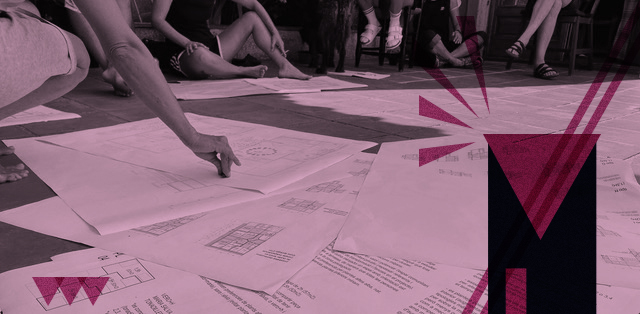
What is La Morada?
La Morada is a feminist cooperative housing in grant of use located in the Roquetes neighborhood of Barcelona, promoted mainly by dykes, trans and other dissident identities. Alongside the promotion process of our building, we are experiencing the creation of a way of life that is based in feminism, sustainability, community and solidarity.
The people that are part of this group share an activist trajectory during the past decades, and we are bound by affection, cohabitation, economic or professional links. But above all, we are together because of the necessity to access adequate housing that is economically affordable and sustainable and our common desire to materialize, in a cohousing project, other ways to organize and sustain life and its affections. These needs took us to articulate ourselves as a cooperative housing project during the spring of 2018.
La Morada is a journey, a lab, a dream: a commitment to learn how to share the different stages of life in the most creative and community-driven way, facing the challenges that the road ahead may bring.
Why a feminist and LGTBIQ+ cooperative housing
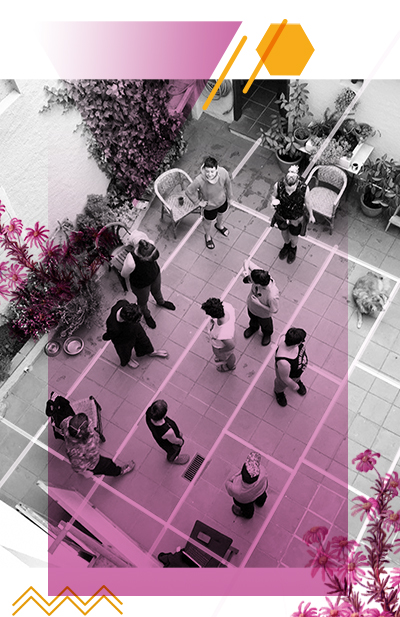
At La Morada we want to walk towards the creation of a feminist cooperative model that brings value to the existing cooperative endeavors both in Catalonia and in Spain and that can become an inspiration for all kinds of people. Feminism exhorts us to break the gender conformity and to deconstruct romantic love and the couple as the only way to feel fulfilled and to organize affection and care. Feminism drives us to create new alliances and ways of living together in which the starting point is to recognize vulnerability as the founding condition that makes both life and resistance possible. It invites us to place interdependence and the sustainability of life in the center of our projects. And to experiment with all of this is easier when people share their daily lives.
At a material level, our project includes the collectivization of tasks, accompaniments, attention to the daily needs of food and hygiene, physical and health needs, care of animals, parenting, etc. It also implies the due respect to autonomy and every person’s need for solitude and, therefore, it draws a continuum between the individual and the collective in a relationship of interdependence and support.
LGTBIQ+ people and everyone who breaks the gender and sex rules suffer daily from many forms of discrimination and violence. Visible and invisible. Direct, symbolic and structural.
We are together in the common experience of having had to face constant myths, prejudices and stigmas about our realities. In the family, the school, the work environment, the healthcare system, sport centers, the activist and associative worlds, the street, the leisure or spiritual spaces. Discrimination articulates itself as a continuum that makes our lives more precarious, whether it be through the access to (and permanence of) labor, housing or a healthy and dignified ageing process away from loneliness and elderly care facilities that take us back inside the closet. This discrimination aggravates when class, origin, health, diversity, age or other factors are also present.
Ultimately, we live in a (cis)heternormative culture that reminds us every day that we don’t fit.
And the truth is… we don’t want to fit in their mold!
We don’t think that normalising us in the (cis)heternormative nuclear family model is a community feminist anticapitalist alternative. On the contrary. We support the creation of other models like feminist and queer housing cooperatives in grant of use.
The architectural model
The architecture of La Morada is the basis that enables community life, is the creation of physical spaces that promote interdependence, is the container that allows a cohousing model that is different from the nuclear heternormative family. It has been created through a participatory process with the technical expertise of the cooperative Lacol (http://www.lacol.coop/), the environmental consultancy of Societat Orgànica (https://societatorganica.com/ca/) and different other collaborations, for example with Col·lectiu Punt 6 (http://www.punt6.org/ca/inici/) (with whom we participated in the workshop The house without gender as a starting point for the project).
The building is designed so that it can adapt to the necessities of the cooperative and its housing units over time, allowing it to generate housing of different characteristics based on a matrix of spaces without hierarchies, articulated according to different degrees of privacy. An architecture of care that is flexible, intimately linked to our values, coherent with the vital changes, and accessible in all corners of the house. Each one of the twelve housing units will enjoy a private space that connects with the rest of work, care and leisure spaces, looking for the balance between private, shared and community spaces. Terrace, community kitchen and laundry, orchard, guest rooms, coworking space, multipurpose area, bike parking space and a patio with plants as access and circulation area.
On an energetic level, the building uses passive strategies to reduce energy use with the support of high efficiency systems that guarantee the comfort needs both in winter and in summer as well as the supply of sanitary hot water all year long, considering the future scenarios of climate change. The building will have a centralized aerothermal installation, radiant heating/cooling ground systems, and photovoltaic panels. We are currently participating in the process to set up a local energy community in Roquetes in cooperation with the cooperative housing project Cirerers and different institutions in the Roquetes neighborhood, like the Associació de Veïnes (neighborhood association), Ateneu de Nou Barris (neighborhood civic center), different schools, the neighborhood market or the recycling station, among others.
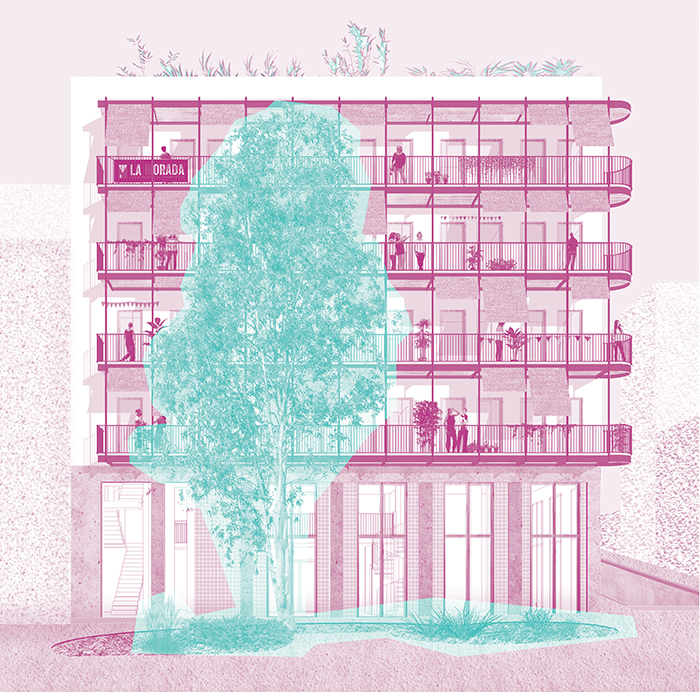
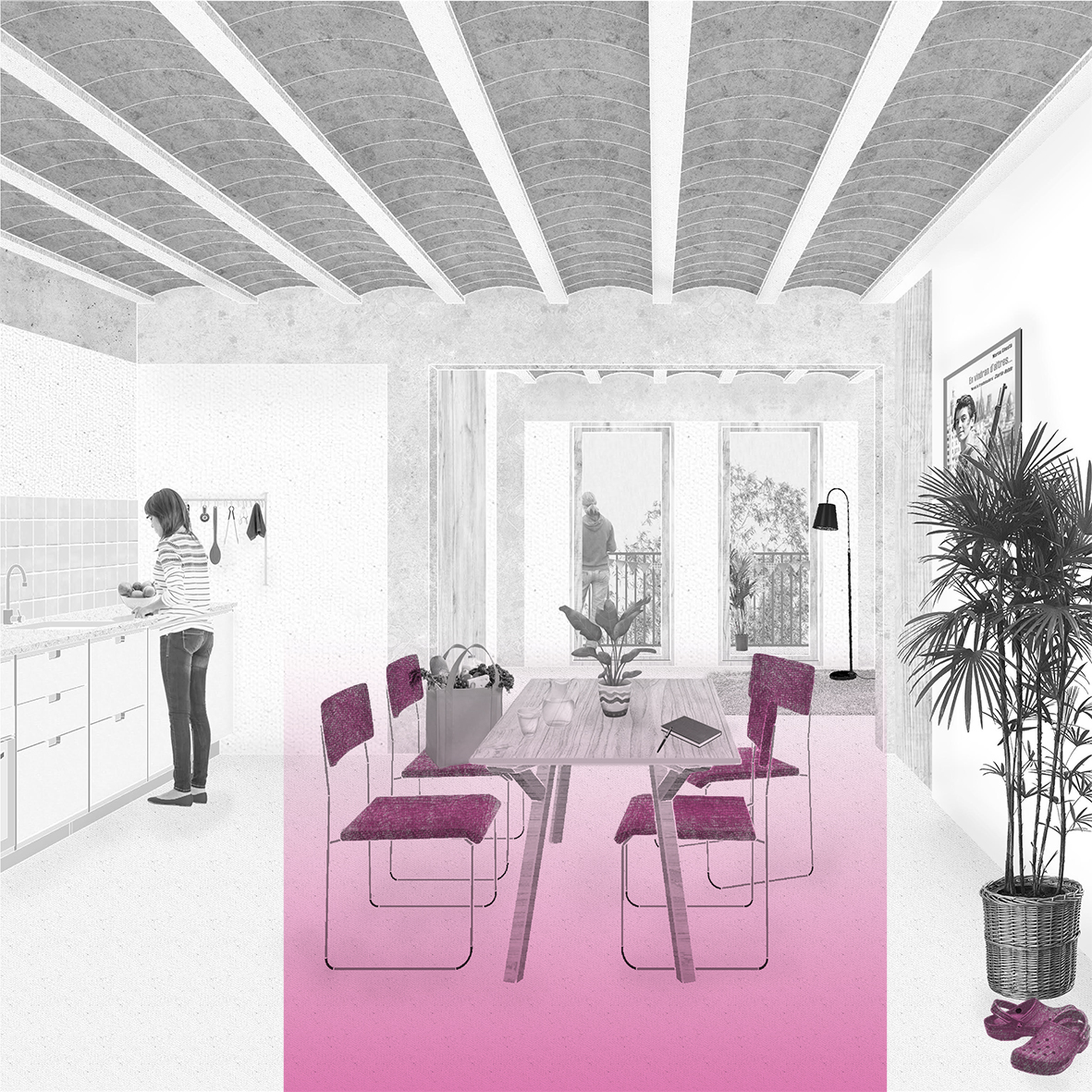
The economic model
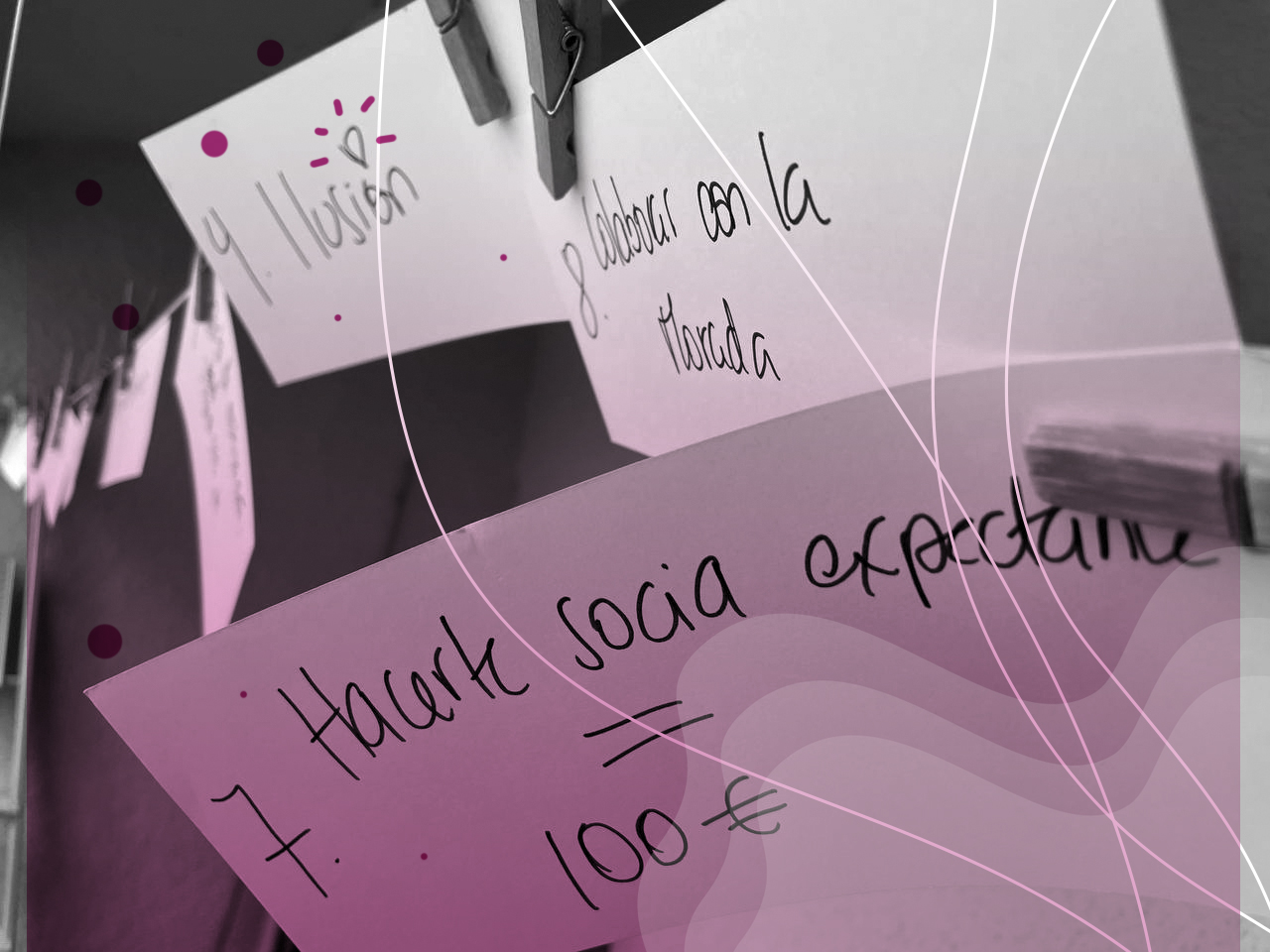
The basic premise of our economic model is to improve housing affordability, the security of its tenancy for the cooperative members, and the willingness to contribute in the expansion of the cooperative housing model. The creation of a solidarity fund among housing units and a collective non-shareable savings fund (Fons Col·lectiu d’Accés a l’Habitatge), that allows in the future to replicate the project, are two distinctive elements of the economic model that pursue the collective interest and mutual support. Together with La Ciutat Invisible SCCL (https://www.laciutatinvisible.coop/) we have developed the economic viability study of our project.
